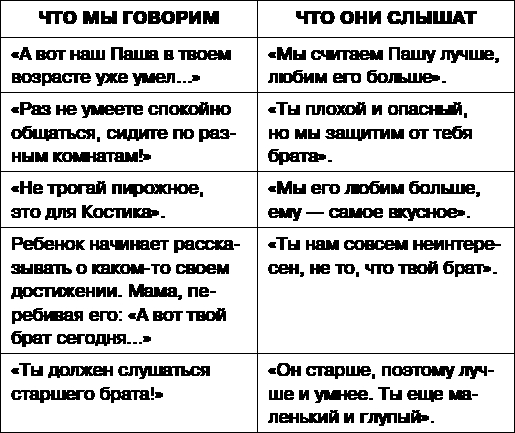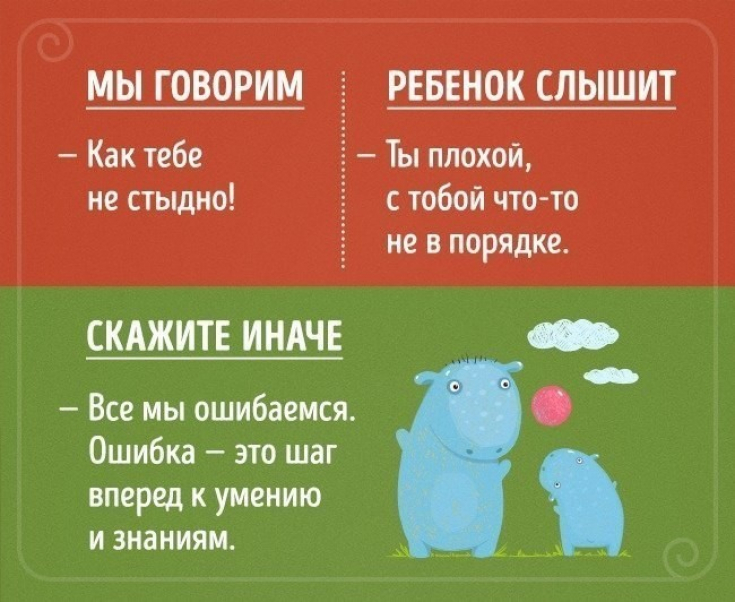The term "toxic parents" was coined by psychiatrist Susan Forward. It means the behavior of adults that spoils the life of a child.
Very often, the result of raising such a mother and / or father is not a happy and successful person, but a person with a bunch of complexes, inability to build one's life, fear of others.
How to recognize this toxicity in your parents in time? And what should I do to protect myself from such negative influence? These important questions were answered by estet-portal.com.
Toxic parents: how to understand that care is suffocating
Toxic parents may behave differently, but the principle of their actions is the same – inconsistency. They want to see the perfect child, they impose their vision of life on them, and then they scold and punish them for it. They are constantly dissatisfied, they cannot be pleased. Another bright sign – children in such families can determine the mood of the parent by the way he enters the house, how he looks, moves.
That is, a small person lives in constant expectation of an emotional attack. And learns to recognize it by the smallest signs.

In their behavior with children, such parents are guided by the following behavioral contradictions:
1. Fear me – love me. The child is afraid of the parent, because you can expect punishment from him at any moment. He does the housework not because it needs to be done, but out of fear of the parent. And in principle, the life and actions of such a child are often controlled by fear – he tests all his actions according to the principle “what will mom / dad say?”. And at the same time, parents notice with displeasure that the child "does not care, does not love"; them.
2. Catch me – your opinion does not interest me. In such families, parents often shift the responsibility for what is happening to the child. For example, they are accused of having pressure on their mother because of him. And he has to behave in a certain way. At the same time, the opinion of the child himself and his needs are not taken into account.
3. Be the best – you are an empty place. The highest achievements are required from a child – first places at the olympiads, the highest score on the exam. At the same time, victories are perceived as something ordinary. And for defeats (the resulting "four") are humiliated and insulted.
4. Trust me – and I will stick a knife in your back. Such parents ask their daughter or son to share their problems and experiences with them. Often literally "pull out" confessions, causing feelings of guilt. And then the same facts are reproached, innermost secrets are told to neighbors or friends.

5. You're bad – don't you dare get better. In this case, it's mostly about looks. Such parents humiliate the child, point out his imaginary, often invented flaws in appearance. They do it out of the best of intentions. But if a child decides to become better (for example, a girl starts playing sports in order to lose weight), then this will be followed by a flurry of criticism and prohibitions.
6. Develop – forget about a successful future. Here the contradictions concern professional or creative realization. The parent demands to become successful, build a career, but for this they forbid to go to another city, study at the right university, look for useful acquaintances.
7. Get out – don't leave me. "There will be my own apartment – then you will decide", "Something you don't like – pack your things and leave. Such phrases are often heard by already quite adult children from relatives. Their opinion is not taken into account, they are forbidden to make a choice (up to control over appearance). And with any attempt to defend your position – reproach square meters. But if the child really decides to move – blackmail trying to dissuade him.
A parent can be guided by one rule or several at once. But even one such principle of behavior speaks of human toxicity. And it doesn't matter whether he does it consciously or unconsciously.
Read also: How problems with your parents affect your personal life
How to deal with toxic parents
Even if you are an adult, the behavior of toxic parents towards you will not change. Attempts to control, accusations and insults, violation of personal boundaries – all this will continue. After all, for them such a model of behavior is familiar, such people do not know how to express concern in a different way. And it is worth accepting, understanding that you cannot change them. Therefore, it is necessary to take responsibility for your own life.
Read also: A student syndrome – how to allow yourself to be imperfect
First of all, let go of the past – it can no longer be changed. The way your toxic parents treated you in the past is not your fault. And this is them – toxic, not you – bad or bad. Therefore, do not project parental attitudes into your life. "Loser", "ugly", "yes you go homeless", "who needs you" – it's all their "vision," their toxic "truth." And it has nothing to do with reality.

But how to build communication with such parents? Break all contact? This is not entirely correct, but can be considered an option if the relationship is really unbearable and threatens your health. If you still live with your parents, try to move out to a separate apartment, gain financial independence. And from this position, you can build communication with loved ones in such a way as to minimize negativity without quarreling completely.
Psychologists make the following recommendations:
1. You have every right to live separately and the way you want.
2. Do not succumb to manipulation, do not rush to help at the expense of your interests.
3. Restrict access to your personal territory (mom or dad should not have "spare" keys to your apartment, because they often abuse spontaneous visits).
4. Manage your resources the way you want.
5. Build up your personal experience, forget about toxic parental attitudes.
Read also: Feelings of fear and anxiety – do it in 5 steps
Remember that your life belongs only to you. And you decide how to live it, what goals to set for yourself and what to achieve. Gently distance yourself from the toxic parent, but don't stop communicating. Nevertheless, this is the person closest to you who raised and educated you. And he loves you in his own way, even though he can't express it properly.
Read also: Bad advice given by others, – why you shouldn't listen to them






Add a comment